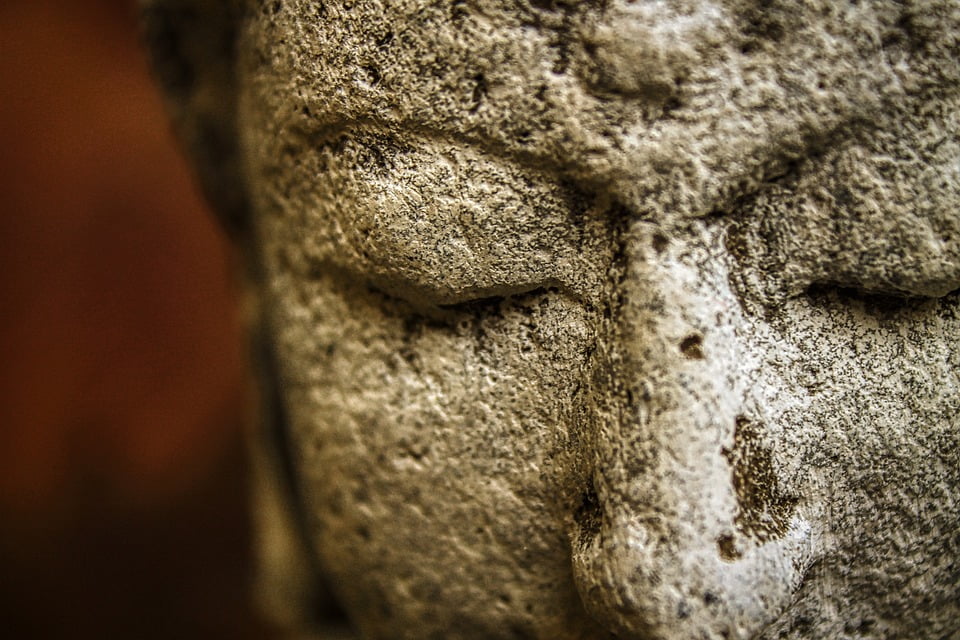Spiritual meanings
The Difference Between Religion and Spirituality: What It Means to Be Religious but Not Spiritual

[ad_1]
In this article, we will discuss the difference between religion and spirituality, and what it means to be religious but not spiritual. We will explore the definitions of religion and spirituality, how they differ, and how they can be intertwined. We will also discuss the importance of understanding the distinction between the two concepts, and how they can impact an individual’s spiritual journey.
What is Religion?
Religion is a set of beliefs, practices, and rituals that are centered around a specific deity or deities. It often involves organized institutions, such as churches, temples, mosques, and synagogues, and has a prescribed set of rules and teachings that followers are expected to adhere to. Religion can provide a sense of community, moral guidance, and comfort to its adherents, and serves as a framework for understanding the world and one’s place in it.
While religion can be a source of spiritual nourishment for many, it is important to recognize that not all religious individuals are spiritual, and not all spiritual individuals are religious. It is possible to strictly adhere to the doctrines and rules of a religion without engaging in spiritual practices or seeking a deeper connection with the divine or inner self.
What is Spirituality?
Spirituality, on the other hand, is a deeply personal and subjective experience that involves seeking meaning, purpose, and connection with something greater than oneself. It encompasses a range of beliefs and practices, including meditation, prayer, mindfulness, and contemplation, and is often driven by an individual’s inner journey and quest for self-discovery.
While religion often provides a structured framework for spiritual exploration, spirituality can exist independently of any religious affiliation. In this sense, spirituality is about exploring one’s inner world, finding peace and purpose, and connecting with the divine or higher consciousness in a way that transcends religious dogma and doctrine.
The Interplay Between Religion and Spirituality
It is important to recognize that the terms “religion” and “spirituality” are not mutually exclusive; they can complement each other and coexist within the same individual. Many people find spiritual fulfillment within the context of their religious beliefs and practices, while others may feel a disconnect between the two and choose to pursue spirituality outside of traditional religious frameworks.
While religion can provide a sense of community and guidance, spirituality offers individuals the opportunity for personal growth, introspection, and a direct connection with the divine. The interplay between religion and spirituality is a deeply personal and nuanced experience, and individuals may navigate their spiritual journey in a way that integrates both aspects or focuses primarily on one over the other.
What Does It Mean to Be Religious but Not Spiritual?
Being religious but not spiritual can manifest in several ways. For some individuals, it may involve strictly adhering to the rituals, rules, and doctrines of their religious tradition without seeking a deeper connection with the divine or inner self. This can result in a superficial engagement with religious practices, lacking the introspective and transformative aspects that are characteristic of spirituality.
It is also possible for individuals to prioritize the communal and social aspects of religion while neglecting their inner spiritual life. This can lead to a disconnect between religious beliefs and personal values, as well as a lack of meaningful connection with the divine or higher consciousness.
Conclusion
In conclusion, the difference between religion and spirituality lies in their focus, structure, and purpose. While religion provides a framework of beliefs, practices, and community, spirituality delves into the individual’s inner journey, seeking meaning, purpose, and connection with something greater than oneself. It is important to recognize that individuals can be religious but not spiritual, and vice versa, and that these distinctions can have a significant impact on an individual’s spiritual growth and well-being.
FAQs
Can you be spiritual without being religious?
Yes, spirituality can exist independently of any religious affiliation. Many individuals find meaning, purpose, and connection with the divine outside of traditional religious frameworks, and engage in practices such as meditation, mindfulness, and introspection as a means of spiritual exploration.
Is it possible to be religious but not spiritual?
Yes, it is possible to strictly adhere to the rituals, rules, and doctrines of a religious tradition without seeking a deeper connection with the divine or inner self. This can result in a more superficial engagement with religious practices, lacking the introspective and transformative aspects that are characteristic of spirituality.
How can religion and spirituality complement each other?
Religion can provide a sense of community, moral guidance, and a structured framework for spiritual exploration, while spirituality offers individuals the opportunity for personal growth, introspection, and a direct connection with the divine. The interplay between religion and spirituality is a deeply personal experience, and individuals may navigate their spiritual journey in a way that integrates both aspects or focuses primarily on one over the other.
Can you be religious and spiritual at the same time?
Yes, many individuals find spiritual fulfillment within the context of their religious beliefs and practices, while others may pursue spirituality outside of traditional religious frameworks. The compatibility between religious and spiritual beliefs and practices is a deeply personal and nuanced experience, and varies from person to person.
How does the difference between religion and spirituality impact an individual’s well-being?
Individuals who are religious but not spiritual may experience a lack of meaningful connection with the divine or higher consciousness, leading to a sense of spiritual emptiness or disconnection. On the other hand, those who are spiritual but not religious may find fulfillment and inner peace through their personal spiritual journey, independent of institutionalized religious beliefs and practices.
[ad_2]

Spiritual meanings
Exploring the Deep Spiritual Message Behind Dreaming of a Child in the Bible

[ad_1]
Are you curious about the deep spiritual message behind dreaming of a child in the Bible? This article will explore the significance of this common dream symbol and what it may reveal about your spiritual journey. From the innocence and purity of children to the symbolism of new beginnings and growth, dreaming of a child can carry powerful spiritual messages that are worth reflecting on.
What does it mean to dream of a child in the Bible?
When we dream of a child in the Bible, it often symbolizes innocence, purity, and new beginnings. In the Bible, children are often seen as a blessing from God and a representation of the future. Dreaming of a child can also be a reminder of the importance of embracing a child-like faith and trust in God. It may be a message to approach life with a sense of wonder, openness, and receptivity to the love and guidance of the divine.
Additionally, dreaming of a child in the Bible can also signify spiritual growth and the need to nurture and protect our inner child. It may be an invitation to reconnect with our sense of innocence, playfulness, and curiosity, and to acknowledge the aspects of ourselves that are still vulnerable and in need of care and attention.
What lessons can we learn from dreaming of a child in the Bible?
Dreaming of a child in the Bible can teach us important lessons about the nature of faith, love, and the journey of spiritual growth. It reminds us to approach life with a sense of purity and simplicity, and to cultivate a child-like trust in the divine. It also encourages us to embrace new beginnings and the potential for growth and transformation, as well as the need to protect and nurture our inner child.

Furthermore, dreaming of a child in the Bible can also serve as a gentle reminder to prioritize the innocence and purity of our intentions and actions, and to approach life with a sense of wonder and openness. It may also prompt us to reflect on the qualities of children that we admire and aspire to embody in our spiritual journey, such as forgiveness, creativity, and a sense of awe and gratitude for the world around us.
How can we apply the spiritual message of dreaming of a child in the Bible to our lives?
When we dream of a child in the Bible, it serves as a powerful reminder to cultivate a sense of child-like faith, trust, and wonder in our daily lives. We can apply this spiritual message by approaching our experiences with an open heart and mind, and by embracing new beginnings and opportunities for growth and transformation.
We can also honor the spiritual message of dreaming of a child in the Bible by nurturing and protecting our inner child, and acknowledging the aspects of ourselves that are still in need of healing and care. This may involve practicing self-compassion, forgiveness, and embracing a sense of innocence, playfulness, and curiosity in our interactions with others and the world around us.
How can we interpret the specific details of dreaming of a child in the Bible?
When interpreting the specific details of dreaming of a child in the Bible, it’s important to pay attention to any unique features or emotions that stand out to you in the dream. For example, the age, gender, and behavior of the child, as well as the context and your emotional response in the dream, can provide valuable insights into the spiritual message being conveyed.
Reflect on the feelings and emotions that arise during and after the dream, and consider how they may be guiding you to pay attention to certain aspects of your spiritual journey. Keep in mind that the symbolism of dreaming of a child in the Bible may be deeply personal, so trust your intuition and inner guidance as you explore the spiritual significance of the dream.
Conclusion
Dreaming of a child in the Bible carries a deep spiritual message that invites us to embrace the qualities of innocence, purity, and new beginnings in our spiritual journey. It also encourages us to nurture and protect our inner child, and to approach life with a sense of wonder, openness, and receptivity to the love and guidance of the divine. By reflecting on the significance of this powerful dream symbol, we can gain valuable insights into our spiritual growth and the lessons that are being revealed to us.
FAQs
1. Can dreaming of a child in the Bible be a message from God?
Yes, dreaming of a child in the Bible can be seen as a message from God, as it often carries spiritual symbolism and insights into our spiritual journey. It may be an invitation to embrace new beginnings, nurture our inner child, and approach life with a sense of innocence and wonder.
2. What does it mean if I dream of a specific gender or age of a child in the Bible?
The specific gender or age of a child in the Bible that you dream of may carry personal significance and symbolism related to your spiritual journey. Reflect on the emotions and feelings that arise in the dream, and consider how they may be guiding you to pay attention to certain aspects of your spiritual growth and the lessons being revealed to you.
3. How can I use the spiritual message of dreaming of a child in the Bible to guide my daily life?
You can apply the spiritual message of dreaming of a child in the Bible to your daily life by cultivating a sense of child-like faith, trust, and wonder, and by embracing new beginnings and opportunities for growth. Honor the message by nurturing and protecting your inner child, practicing self-compassion, forgiveness, and embracing a sense of innocence, playfulness, and curiosity in your interactions with others and the world around you.
4. What if I don’t remember my dreams, can I still receive this spiritual message?
Even if you don’t remember your dreams, you can still receive the spiritual message of dreaming of a child in the Bible by setting an intention to be open and receptive to any insights, guidance, and symbolism that may be revealed to you during your waking hours. Trust your intuition and inner guidance to recognize the signs and messages that are being presented to you from the divine.
5. Is it possible for dreams of a child in the Bible to have negative interpretations?
Yes, dreams of a child in the Bible may have negative interpretations depending on the context and emotions in the dream. It’s important to consider the specific details and symbolism of the dream, and to trust your intuition and inner guidance as you explore the spiritual message being conveyed. Seek support from spiritual leaders or mentors if you feel overwhelmed or confused by the interpretation of your dream.
[ad_2]
Spiritual meanings
Unlocking the Spiritual Power of Mustard Seeds

[ad_1]
In this article, we will explore the spiritual meanings and significance of mustard seeds. We will discuss how these tiny seeds hold great power and how they are often referenced in spiritual texts and teachings.
What are Mustard Seeds?
Mustard seeds are small, round seeds that come from the mustard plant. They are commonly used as a spice in cooking, adding a pungent flavor to dishes. However, these tiny seeds have also been a symbol of faith and spiritual power for centuries.
In various spiritual traditions, mustard seeds are often used as a metaphor for faith and the potential for great impact from small beginnings.
What is the Spiritual Significance of Mustard Seeds?
In the Christian faith, mustard seeds are mentioned in the Bible, specifically in the book of Matthew. In Matthew 13:31-32, Jesus tells his followers that with faith as small as a mustard seed, they can move mountains. This passage emphasizes the concept of faith and the incredible power it holds, even in the smallest amounts.
Similarly, in Hindu and Buddhist traditions, mustard seeds are seen as a symbol of faith and the potential for growth. They are often used in religious rituals and ceremonies to represent the power of belief and the ability to overcome obstacles.
How can we Unlock the Spiritual Power of Mustard Seeds?
Unlocking the spiritual power of mustard seeds begins with cultivating faith and belief in oneself and in the greater universal forces. This can be achieved through practices such as meditation, prayer, and self-reflection.
By embracing the metaphor of the mustard seed, individuals can tap into their inner spiritual power and find strength in times of doubt or adversity. It is a reminder that even the smallest amount of faith can lead to great growth and transformation.
How can Mustard Seeds be Incorporated into Spiritual Practices?
Mustard seeds can be incorporated into spiritual practices through various means. In some traditions, they are used in rituals, prayers, or offerings as a symbol of faith and spiritual growth. They can also be worn as jewelry or carried as a talisman to serve as a reminder of the power of belief.
In addition, mustard seeds can be planted and cultivated as a physical representation of spiritual growth and the potential for greatness from humble beginnings. Watching the seeds grow into a strong, resilient plant can serve as a powerful metaphor for personal and spiritual development.
Conclusion
Mustard seeds hold profound spiritual significance across various traditions and religions. They are a symbol of faith, potential, and the ability to overcome obstacles. By embracing the spiritual power of mustard seeds, individuals can cultivate a greater sense of belief and inner strength, leading to personal and spiritual growth.
FAQs
What are the main spiritual meanings of mustard seeds?
The main spiritual meanings of mustard seeds include faith, potential, and the ability to overcome obstacles. They are often used as a metaphor for the power of belief and the potential for great impact from small beginnings.
How can mustard seeds be incorporated into spiritual practices?
Mustard seeds can be incorporated into spiritual practices through rituals, prayers, offerings, or as a physical representation of spiritual growth. They can also be worn as jewelry or carried as a talisman to serve as a reminder of the power of belief.
What does the Bible say about mustard seeds?
In the book of Matthew, Jesus tells his followers that with faith as small as a mustard seed, they can move mountains. This passage emphasizes the concept of faith and the incredible power it holds, even in the smallest amounts.
What do mustard seeds symbolize in Hindu and Buddhist traditions?
In Hindu and Buddhist traditions, mustard seeds are seen as a symbol of faith and the potential for growth. They are often used in religious rituals and ceremonies to represent the power of belief and the ability to overcome obstacles.
How can individuals unlock the spiritual power of mustard seeds?
Individuals can unlock the spiritual power of mustard seeds by cultivating faith and belief in oneself and in the greater universal forces. This can be achieved through practices such as meditation, prayer, and self-reflection.
[ad_2]
Spiritual meanings
Exploring the Spiritual Journey

[ad_1]
Exploring the Spiritual Journey
In this article, we will explore the depths of the spiritual journey, discussing the meaning behind it and how it can impact our lives. From understanding the spiritual self to embracing mindfulness and gratitude, we will delve into the various aspects of this profound journey.
What is the spiritual journey?
The spiritual journey is a quest for self-discovery and inner peace. It involves a deep exploration of one’s beliefs, values, and purpose in life. This journey transcends the material world and delves into the realm of the soul. It is a path of enlightenment and awakening, where individuals seek to connect with a higher power or divine presence.
At its core, the spiritual journey is about finding meaning and fulfillment beyond the confines of the physical world. It is a journey of the heart and soul, leading individuals towards a greater understanding of themselves and the universe.
How does one embark on the spiritual journey?
Embarking on the spiritual journey begins with a willingness to explore the depths of one’s being. It requires an open mind and a receptive heart to new experiences and perspectives. Many individuals find that meditation, prayer, and introspection are valuable tools for initiating their spiritual journey.
Seeking guidance from spiritual teachers, mentors, or joining a community of like-minded individuals can also provide support and encouragement along the way. Ultimately, the journey begins with a conscious decision to seek spiritual growth and understanding.
What role does mindfulness play in the spiritual journey?
Mindfulness is a fundamental practice in the spiritual journey, as it cultivates an awareness of the present moment and encourages a deep connection with the self and the surrounding world. By living mindfully, individuals can quiet the chaos of the mind and nurture a sense of inner peace and tranquility.
Practicing mindfulness allows individuals to be fully present, appreciating the beauty of life and fostering a sense of gratitude for the blessings that surround them. It is a powerful tool for deepening the spiritual journey and nurturing a profound sense of connection with the universe.
How does the spiritual journey impact daily life?
The spiritual journey has a transformative impact on daily life, as it instills a sense of purpose and meaning in everyday experiences. It encourages individuals to approach life with compassion, empathy, and understanding, fostering deeper connections with others and the world around them.
By aligning with spiritual principles, individuals can find greater clarity, resilience, and inner strength in facing life’s challenges. The spiritual journey empowers individuals to live authentically, in alignment with their values and beliefs, ultimately leading to a more fulfilling and purpose-driven life.
How can one stay committed to the spiritual journey?
Staying committed to the spiritual journey requires dedication and perseverance. It is essential to cultivate a consistent practice of self-reflection, meditation, and mindfulness to nourish the spirit and soul. Surrounding oneself with a supportive community of fellow seekers, whether in person or virtually, can also help maintain motivation and inspiration.
Additionally, setting clear intentions and goals for the spiritual journey, and regularly revisiting them, can keep individuals focused and committed to their path of spiritual growth and development.
Conclusion
Embarking on the spiritual journey is a profound and transformative experience that can enrich every aspect of life. By delving into the depths of the spiritual self, embracing mindfulness and gratitude, and committing to personal growth, individuals can embark on a path of enlightenment and self-discovery. The spiritual journey offers an opportunity to cultivate a deeper connection with the universe and live a more purposeful and fulfilling life.
FAQs
Can anyone embark on the spiritual journey?
Yes, the spiritual journey is open to anyone who seeks to explore their inner world and connect with something greater than themselves. It is a personal and individual path that transcends religious or cultural beliefs.
How long does the spiritual journey take?
The duration of the spiritual journey varies for each individual. Some may experience profound spiritual growth and transformation relatively quickly, while for others, it may be a lifelong pursuit of self-discovery and enlightenment.
Can one be spiritual without being religious?
Yes, spirituality is a personal journey of connecting with the inner self and the universe, independent of religious affiliations. Many individuals embrace spirituality without adhering to any specific religious doctrine or belief system.
How does the spiritual journey impact mental well-being?
The spiritual journey can have a positive impact on mental well-being by fostering a sense of inner peace, resilience, and emotional balance. It encourages individuals to cultivate mindfulness, self-awareness, and gratitude, which are essential for mental wellness.
What are some common challenges on the spiritual journey?
Common challenges on the spiritual journey may include overcoming self-doubt, navigating conflicting beliefs, and maintaining consistency in spiritual practices. It can also be challenging to integrate spiritual insights and experiences into everyday life.
[ad_2]
-

 About bible7 months ago
About bible7 months agoUnlocking the Spiritual Meaning of 18 in the Bible
-

 Spiritual meanings6 months ago
Spiritual meanings6 months agoExploring the Deep Spiritual Message Behind Dreaming of a Child in the Bible
-

 symbolism7 months ago
symbolism7 months agoWinged Messengers: Birds of Hope and Inspiration
-

 Spiritual meanings6 months ago
Spiritual meanings6 months agoDecoding the Symbolism: What Does a Bobcat Dream Represent According to Biblical Teachings?
-

 Spiritual meanings7 months ago
Spiritual meanings7 months agoWhat is Spiritual Consultation and Why is it Important?
-

 symbolism7 months ago
symbolism7 months agoThe Cultural Significance of the Foolish Bird in Pakistani Folklore
-

 About bible7 months ago
About bible7 months agoUnlocking the Meaning of 12: Exploring its Significance in the Bible
-

 Spiritual meanings6 months ago
Spiritual meanings6 months agoExploring the Spiritual Journey











